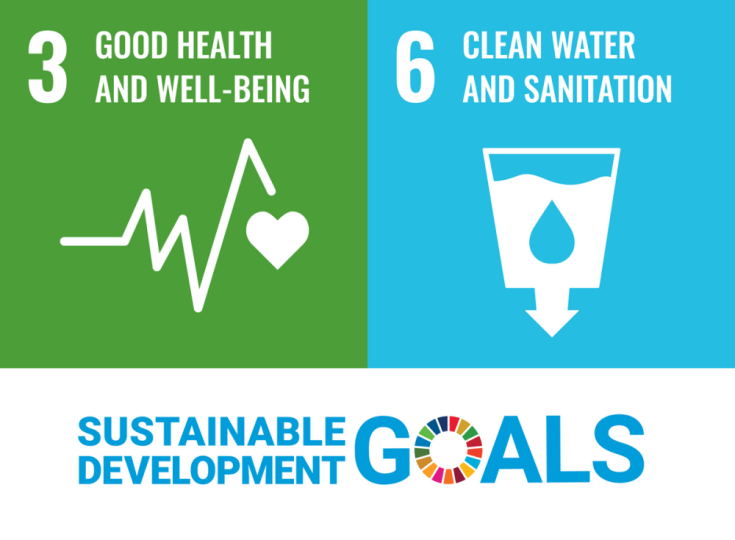Here is another excerpt from our brief “The role of media: Driving change towards the SDGs” published on the occasion of the Global Week to #Act4SDGs. It discusses the role independent media play in driving the change towards better health and sanitation, as encompassed in SDG 3: Good Health and Well-being and SDG 6: Clean Water and Sanitation.
“The Covid-19 pandemic has shown more than ever the essential role of journalists to inform citizens and to make our democracies work”
– Věra Jourová, Vice-President of the European Commission[i]
The Covid-19 pandemic underscored the societal importance of reliable and verified news and information[ii]. At a time when millions of lives have been lost, media have played a key role in coronavirus disease tracking[iii], spreading awareness about preventive behaviours[iv] and tackling infodemics and misinformation [v].
For citizens to be able to make rational choices about their health, access to quality information is indispensable. Media play a crucial role in promoting behavioural changes in their audience[vi], disseminating health information and spreading awareness[vii], from HIV/AIDS prevention and substance abuse to promoting physical activity and oral hygiene[viii]. As part of their watchdog role, journalists can mobilise change in health-related policies and industry practices[ix]. In fact, democracies where the media are unrestrained and hold power to account produce healthier populations than autocracies[x]. In particular, greater press freedom is associated with higher health expenditure, better access to clean water, lower infant mortality and an increase in life expectancy at birth[xi].
Below we present case studies of impactful journalism and information sharing done by MDIF clients done in the area of SDGs 3 and 6 as real-world examples that illustrate the transformative power of media.
Examples of impact
In Poland, daily Gazeta Wyborcza uncovered evidence of insider dealing in the procurement of personal protective equipment (PPE). It reported that at the beginning of the coronavirus pandemic, the Health Minister bought masks from a skiing instructor who was friends with his brother and who had no previous experience selling medical equipment. The Ministry ended up paying eight times their retail price for equipment that turned out to be defective and did not meet safety standards. Both the Minister and Deputy Minister resigned, though without admitting that it was in relation to the case. The Prosecutor’s Office in Warsaw opened an investigation into mismanagement of public funds, but then decided to discontinue it, sparking outrage among opposition politicians who accused them of covering up a crime for political ends.
In the Philippines, over several years digital outlet Rappler exposed the truth about extrajudicial killings and a lack of accountability surrounding former president Duterte’s brutal “war on drugs”, with thousands of poor Filipinos dying at the hands of the police and vigilantes during anti-illegal drug operations. In retaliation for its critical reporting, Rappler and its reporters face continued harassment, both from a violence-inciting troll army and from the administration, and are facing multiple probes and lawsuits. Meanwhile, local and international groups, including the U.N. Human Rights Office, called on the Philippine government to end his anti-narcotics crackdown and vigilante violence and focus on recovery and social integration policies and targeting big-time drug lords. In 2021, the Hague-based International Criminal Court authorised an investigation into possible crimes against humanity.
Read the full brief “The role of media: Driving change towards the SDGs” here.
[i] European Commission (2021). “Introductory speech of Vice-President Jourova at the European Parliament CULT Committee”
[ii] UNESCO (2020). “Journalism, press freedom and COVID-19”
[iii] Anwar, A., Malik, M., Raees, V., & Anwar, A (2020). “Role of Mass Media and Public Health Communications in the COVID-19 Pandemic”. Cureus.
[iv] Yan, Q et al. (2020). “Impact of media reports on the early spread of COVID-19 epidemic.” Journal of Theoretical Biology
[v] Reuters Institute (2021). “How evidence can help us fight against COVID-19 misinformation”. International Review of Law, Computers & Technology.
[vi] Wakefield, M. A., Loken, B., & Hornik, R. C (2010). “Use of mass media campaigns to change health behaviour”. The lancet
[vii] Cavill, N., & Bauman, A (2004). “Changing the way people think about health-enhancing physical activity: do mass media campaigns have a role?”. Journal of sports sciences
[viii] Noar, S. M (2006). “A 10-year retrospective of research in health mass media campaigns: where do we go from here?”. Journal of health communication.
[ix] Freudenberg, N., Picard Bradley, S., & Serrano, M (2009). “Public health campaigns to change industry practices that damage health: an analysis of 12 case studies”. Health Education & Behavior.
[x] Nazarov, Z., Obydenkova, A (2022). “Public Health, Democracy, and Transition: Global Evidence and Post-Communism”. Social Indicators Research; Wigley, S. Akkoyunlu-Wigley, A (2011). “The Impact of Regime Type on Health: Does Redistribution Explain Everything?”. World Politics
[xi] Guseva, M et al. (2008). “Press freedom and development: an analysis of correlations between freedom of the press and the different dimensions of development, poverty, governance and peace”. United Nations Educational Scientific and Cultural Organization.
